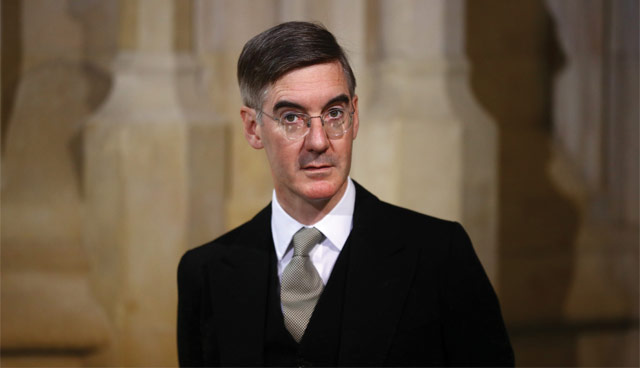A Northern Ireland-only backstop

While coming much later than originally expected, it now appears that hardline Brexiters in Great Britain are starting to falter in their allegiance to Northern Ireland now that they have disposed of Theresa May’s withdrawal agreement.
Recently the head of the influential right-wing think tank, Civitas, which is largely regarded as reflective of the thinking of the European Research Group (ERG), the pro-Brexit grouping of MPs of which Jacob Rees-Mogg was a former Chair, alarmed unionists in Northern Ireland by declaring his belief that a vote for Irish unity might be necessary.
Director David Green wrote in the Daily Telegraph on the back of a poll published by Lord Ashcroft which found a 51 per cent majority in favour of unification in a survey of Northern Ireland.
He described Northern Ireland as a “millstone round the neck of the rest of the UK” and highlighted figures which suggest “it costs the UK more to support Northern Ireland than it does to be in the EU”.
“In other words we pay a net £7.8 billion to gain access to a market of about 450 million people (after deducting our own population) and we pay £8.8 billion a year to 1.8 million people in Northern Ireland,” he wrote in a Daily Telegraph column, a paper popular with the Conservative Party membership and which the Prime Minister himself was a regular columnist for.
In highlighting that Northern Ireland receives the highest per head allocation of any region in the UK, £11,042 compared to England’s £8,898, Green claimed that the Government “effectively bribe” Northern Ireland’s population to remain in the UK.
Green also talked up the attractiveness of the current Irish economy, “As measured by GDP per head, Ireland is very prosperous”, he said, adding: “The latest statistics show GDP per head in Ireland of $72,600. The Northern Ireland equivalent is $29,300 and for the UK it is $42,400.”
Green’s outlook sparked anger amongst unionists in Northern Ireland. the UUP MLA Doug Beattie described the article as “utterly disgraceful” and said the remarks were “contemptuous”. He added: “It’s absolutely clear that English nationalism is alive and well. It just shows that he cares little for the union.”
“I think Brexit has polarised people within the UK and some of them are coming out with statements purely because they want to see Brexit done and out of the way. If anything is getting in the way, it becomes fair game to them. I think Brexit is the cause of our ills in this regard,” stated Beattie.
TUV Leader Jim Allister said that Green could “do with a wee bit of patriotism”.
Green outlined that he believed that a customs border in the Irish Sea “remains the best solution” for resolving the Brexit impasse but added: “If the DUP continues to block this obvious remedy, then a referendum on Irish unity will be the best way forward for everyone, in Northern Ireland, the republic and the rest of the UK,” he writes.
If the DUP continues to block this obvious remedy, then a referendum on Irish unity will be the best way forward for everyone, in Northern Ireland, the republic and the rest of the UK.
— David Green, Director, Civitas
Green’s preference for a customs border in the Irish Sea correlates with MP Jacob Rees-Mogg’s call for compromise which will be “inevitably needed” if the UK is to secure a deal. Rees-Mogg, a leading figure in ensuring that the withdrawal agreement did not get through Parliament, said recently that he may have to “eat my own words” with regards to his previous criticism of a customs partnership proposal.
Those proposals appear to be the foundations of the UK’s latest proposals in which Northern Ireland stays in the UK’s customs territory but has to apply EU tariffs and provide rebates in some circumstances.
Regarded in the EU as an incredibly complex system, the dual-customs arrangement face a number of challenges, most notably that of time, if it is to get approval on all sides before 31 October.
Apart from time, a major challenge for the proposals is the need for a distinction between products that end up in Northern Ireland and those that go on to the EU’s single market. The EU had advocated for a return to the Northern Ireland-only backstop proposal but this has been rejected by the UK.
The EU fear that the new proposals could have implications on the bloc’s customs code and open it up to fraud. As yet, solutions to these problems have not been offered. A further consideration is the potential for unfair competitive advantages for companies setting up in Northern Ireland, a problem for the EU in selling the deal back to members. A EU-UK free trade deal would navigate the need for a backstop in whatever form it takes but the UK is signalling it still desires regulatory differences with the EU, which would make a deal’s scope far narrower.
There’s also the issue of consent for Northern Ireland. Johnson’s four-year veto proposal was quickly dismissed by the EU and then shelved by the UK as a non-runner. However, no new plans have been drawn up for Northern Ireland’s future role in deciding which customs rules it abides by.





